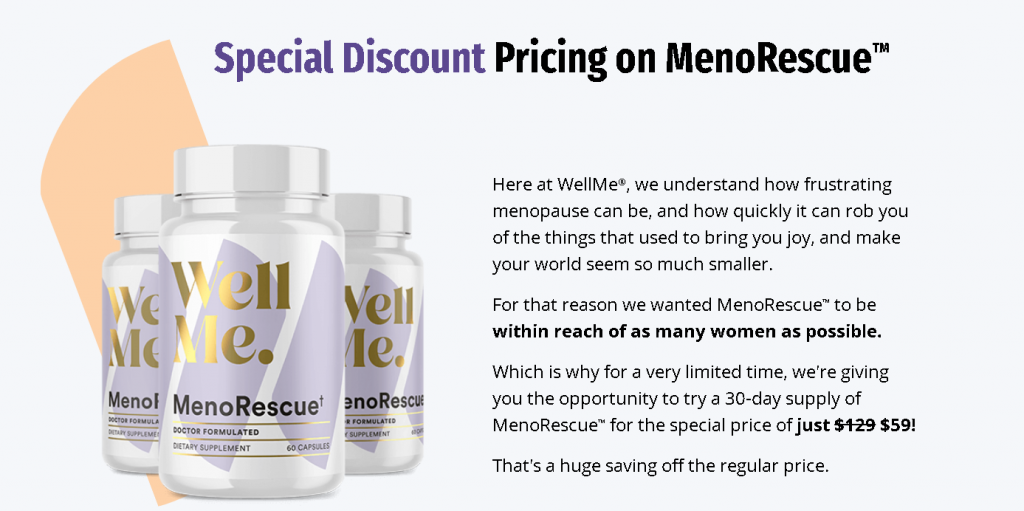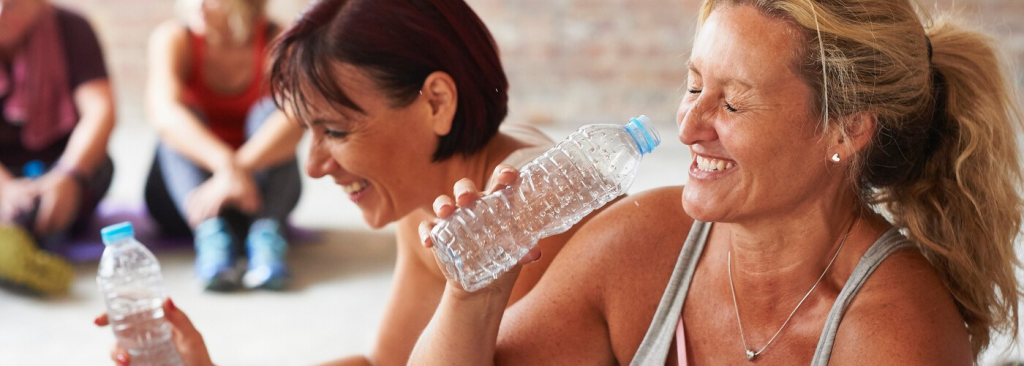
- Unlock Dr. Gator’s Vaccine Information Guide, and navigate the complex world of vaccinations with confidence!


Whether a ‘burning sensation’ in your chest keeps you awake at night or stops you from enjoying your tea, you’re not alone – 1 in 4 people in the UK regularly deal with the discomfort of acid reflux or heartburn.
In most cases, heartburn is nothing to worry about. It is simply when stomach acid travels back up your throat, which we don’t even notice most of the time. The ‘burning sensation’ can be exacerbated, however, by not elevating your head when lying down, stress or anxiety, and – the main focus of this article – dietary choices.
Read on to find out what foods help acid reflux go away, which heartburn foods to avoid, and some general tips for managing heartburn on a day-to-day basis.
While acid reflux and heartburn terms are often used interchangeably, they are in fact different things.
An acid reflux refers to stomach acid or stomach contents travelling up towards the throat, whilst heartburn is the feeling of burning sensation in the chest, caused by acid reflux. So, in short, heartburn is a symptom of an acid reflux.
You should look to add these superfoods (think spinach and broccoli) to your diet, where possible.
Leafy greens are not the only high-fibre foods that help with heartburn – there are a whole host of small swaps you can make to keep those discomforting symptoms at bay.
legumes, low-fat dairy, as well as lean meats, fish or plant proteins like tofu or quinoa,
To make sure you’re getting as much hydration as possible, also consider adding these water-rich foods that help with heartburn:
There are plenty of foods that help acid reflux go away – but what about those foods that exacerbate heartburn and cause those burning sensation flare ups?
And while it can vary from person to person, fatty, oily, spicy, and sugary foods are the most common triggers for acid reflux. That’s because they linger longer in your stomach, making it more likely that acid leaks back up to your throat.
Some of the most common heartburn foods to avoid include:
Whether you’re adding foods that help with heartburn or keeping an eye out for those foods to avoid with acid reflux, watching what you eat can go a long way to helping alleviate symptoms.
However, there are also slight lifestyle tweaks you can make to help manage the discomfort of heartburn, including:

Menopause marks a significant period in your life, bringing about several changes. One such change that might be causing you concern is hair loss. Understanding the link between menopause and hair loss is important in finding strategies to manage this issue.
This natural biological process is characterized by three stages: perimenopause, menopause, and postmenopause. During these stages, your body undergoes significant hormonal shifts. Research indicates that these changes, particularly the reduction in estrogen and progesterone levels, play a pivotal role in hair thinning and loss.
Hair growth goes through phases: growth (anagen), rest (telogen), and shedding (exogen). The hormonal upheaval during menopause can disrupt this cycle, shortening the growth phase and extending the shedding phase. This leads to a noticeable decrease in hair density and volume.
Although menopause is synonymous with a decrease in female sex hormones, it also triggers an increase in androgens, a group of male hormones. Androgens, such as testosterone, can shrink hair follicles, exacerbating hair loss on the scalp. The imbalance between reduced estrogen and increased androgens is a key factor contributing to menopausal hair loss.
Estrogen is crucial for hair growth and the maintenance of the hair life cycle, as it prolongs the growing phase, leading to longer and more voluminous hair. However, during menopause, a significant drop in estrogen levels can affect hair growth and health, causing slower hair growth and thinner strands. Research involving skin cells and animal studies indicates that estrogen not only promotes hair growth but may also help maintain the thickness of the hair strand, highlighting the hormone’s key role in preserving hair health.
Exploring through menopause, you might observe some changes that catch you off guard, particularly when it comes to your hair. Deciphering the signs of menopausal hair loss early on can be a game-changer in how you manage and mitigate its effects. Here’s what you need to keep an eye out for…
Widespread thinning across the scalp is a key sign of menopausal hair loss, marked by a gradual and uniform decrease in hair density leading to reduced volume. Also, increased shedding beyond the normal 50 to 100 strands a day, and noticeable hairs on pillows, shower drains, or hairbrushes, indicate more than normal hair loss. Changes in hair texture towards finer strands contribute to the appearance of thinning and can complicate styling efforts. Lastly, experiencing slower hair growth or weaker regrowth is common due to hormonal changes during menopause.
The truth is, while you can’t completely stop the biological process, you can certainly take measures to reduce the impact and protect your hair’s health.
Adjust Your Diet: Nutrition plays an important role in hair health. Incorporate a balanced diet rich in proteins, healthy fats, and essential vitamins and minerals. Foods high in omega-3 and omega-6 fatty acids, like fish and flaxseed, can support hair strength and texture. Meanwhile, spinach, eggs, and carrots are great sources of the vitamins and minerals needed for healthy hair growth. Use a supplement such as Menorescue to promote healthy cortisol levels in order to encourage estrogen and progesterone balance.
Gentle Hair Care Practices: The way you assist your hair can either protect it or put it at further risk of damage. Avoid excessive heat styling and harsh chemical treatments. Opt for gentle, sulfate-free shampoos and conditioners that nourish rather than strip your hair. Never underestimate the power of a good, wide-tooth comb for detangling without breakage.
Stress Management: Stress can exacerbate hair loss. Engaging in regular exercise, practicing mindfulness or yoga, and ensuring you’re getting enough sleep are all effective ways to lower stress levels. Remember, a calm mind often leads to a healthier body – and that includes your hair.


In the high-pressure environment of healthcare, self-care is often sidelined, yet it is crucial for longevity and effectiveness in this field. From Live Free From Stress this guide aims to offer you practical and essential self-care strategies to help balance your professional and personal life, ensuring you avoid burnout and continue to thrive in your demanding career.
You must carve out time for activities that replenish your energy. Whether it’s engaging in physical exercise, indulging in your favorite hobbies, or cherishing moments with your family and friends, these activities are not just leisure; they are essential for rejuvenating your spirit and mind. Regularly engaging in these practices helps maintain a healthy equilibrium between your professional duties and personal life, ensuring neither gets neglected.
Being mindful of your caffeine intake is crucial for maintaining your overall wellbeing, as it can significantly impact your health. Trendy coffee and energy beverages, in particular, often contain high levels of caffeine, which, while providing a temporary boost in energy and alertness, can also exacerbate stress and anxiety levels in some individuals. To ensure you’re consuming a healthy amount, it’s wise to look up the caffeine content of your favorite beverages online. This simple step can help you make informed decisions about what and how much you drink, allowing you to enjoy the benefits of caffeine while minimizing its potential downsides.
It’s imperative to learn the art of saying “no.” Setting clear boundaries is not selfish; it’s a necessary step in managing your workload and stress levels. By politely but firmly declining additional responsibilities that exceed your capacity, you safeguard your time and energy, preventing the onset of exhaustion and burnout. This assertiveness is a key component in maintaining a healthy work-life balance.
Earning a master’s degree online is an excellent strategy for those in a role that’s no longer challenging or for individuals ready for a career change. For instance, the benefits of a Master’s degree in nursing are substantial, offering a range of concentration options such as nurse education, informatics, nurse administration, or advanced practice nursing options. This level of specialization enables you to tailor your career to your interests and goals.
Online degree programs provide the flexibility to work full-time while keeping up with your studies, ensuring that advancing your education enhances your career prospects without sacrificing your current job. This approach to higher education, particularly in nursing, opens doors to leadership roles and specialized fields, significantly enriching your professional life.
Acknowledging the need for professional help in managing stress and emotional challenges is a sign of strength. Seeking counseling or therapy is an integral part of self-care, especially in a field as emotionally taxing as healthcare. These services provide a safe space to unpack your thoughts and feelings, offering strategies to cope with the challenges you face, thereby fortifying your mental resilience.
Building a network with fellow healthcare professionals is invaluable. These connections offer a unique form of support, as they understand the specific pressures and challenges of the medical field. Sharing experiences, advice, and encouragement with peers can provide a sense of community and belonging, which is crucial for emotional well-being in a high-stress environment.
Taking a sabbatical offers a valuable chance to step back, providing the rest and rejuvenation you need both physically and mentally. It’s an opportunity for you to reconnect with yourself and delve into interests beyond your professional life. Upon returning, you’ll find yourself re-energized, armed with a new perspective. These breaks can be transformative, often leading to a revitalized outlook on both your career and personal life.
In the healthcare profession, self-care is essential for maintaining both effectiveness and fulfilment in your career. By integrating these self-care strategies, you prioritize your well-being, a critical step in sustaining your dedication to healthcare. Ensuring your own health and happiness allows you to continue delivering high-quality care with passion. Self-care is the bedrock that enables you to care optimally for others. Remember, your ability to provide the best care for others is deeply rooted in how well you take care of yourself.
While multiple factors can trigger hair thinning – blood sugar imbalances can be a top contributor.
When you’re experiencing hair loss, it’s essential to consider various factors, and high blood sugar levels could be the culprit behind your thinning hair.
Elevated blood sugar can cause damage to your blood vessels over time, and poor circulation may lead to deprived hair follicles that are unable to sustain normal hair growth.
Hair follicles require a steady supply of blood to maintain growth and health. However, with the impairment caused by high blood sugar levels, your scalp and hair follicles receive less oxygen and vital nutrients they need to thrive. The result is a slower hair growth cycle, leading to brittle hair and eventual shedding.
The Link Between High Blood Sugar and Hair Loss: Inflammation
Chronic, low-grade inflammation can impair the normal hair cycle, disrupting growth and leading to hair loss. Your hair has a defined growth cycle that includes phases of growing, resting, and shedding. This high blood sugar induced inflammation can cause this cycle to accelerate or stall. In particular, the inflammation can damage your hair follicles, where your hair starts its growth. When these follicles are inflamed, they may not produce hair as efficiently, leading to the excessive shedding.
The Negative Effect on the Immune System as Well
When your body is dealing with long-term high blood sugar levels, the immune response can sometimes go into overdrive, which could escalate the inflammation around your hair follicles. And when inflammation is chronic, it doesn’t just stop with hair loss—you could see additional health issues like autoimmune disease, skin problems and a higher sensitivity to infection, which could further exacerbate hair-related concerns.
Remember, various factors influence hair health, and nutrient deficiencies or stress can also lead to hair loss. However, if you find that your hair loss aligns with symptoms of hyperglycemia—like extreme thirst, frequent urination, or blurred vision—it’s a strong indication that diabetes or high blood sugar may be connected to the issue.
The Key is Controlling Blood Sugar Levels
It’s essential to understand how blood sugar levels can play a significant role in hair loss. High blood sugar can interrupt the supply of nutrients and oxygen to your hair follicles, essentially starving the hair of what it needs to grow healthily. Keep in mind that the level of blood sugar control can make a significant difference. Optimal management may help slow down the hair loss process. It’s crucial to monitor your blood sugar closely (and quit eating sugar and simple carbs if that’s your issue) to help maintain a balanced blood sugar level, thus helping mitigate hair loss.
Improving blood sugar management could lead to a noticeable reduction in hair thinning, stimulating the regrowth of your hair. Remember, you’re also proactively taking steps to preserve your hair’s vitality.

We are bombarded with messages about drinking more fluids – but is it really essential?
The water content of our body equates to between 50% and 65%. The NHS recommend we should drink six to eight glasses of water a day to keep our bodies topped up and hydrated, but sadly most of us don’t drink enough, and we are leaving ourselves dehydrated, out of energy and prone to gaining weight.
However new research November 2022 from the University of Aberdeen “shows the recommended water intake of eight glasses (around two litres) a day seldom matches our actual needs, and in many situations, is too high.” “Because water contents of foods vary so much, working out the exact required drinking water is difficult. For a typical person in the US or Europe, probably more than half of the 3.6 litres of water comes from food, which means that the amount needed to be drunk is around 1.5 to 1.8 litres day. For a woman in her twenties, it is probably about 1.3 to 1.4 litres per day. Older people will generally require less than this, while hot climates, being pregnant or breast-feeding and greater physical activity will increase it”
The NHS Eatwell guide recommends that our water intake should be around six to eight glasses of water a day. As well as water, low fat milk, sugar-free drinks – including tea and coffee – all count towards this amount. If you are using tea and coffee within your daily allowance, consider using decaffeinated drinks, as it’s a healthier option.
“Your body is nearly two thirds water and so it is really important that you consume enough fluid to stay hydrated and healthy,” says the British Nutrition Foundation. “If you don’t get enough fluid you may feel tired, get headaches and not perform at your best.” A study into how well children performed in a visual attention test showed that those who did not drink water beforehand achieved a lower score than those who did.
Water is more than just a quick drink to quench your thirst, it has many amazing health benefits that most of us are missing out on.
Research published in the Journal of Endocrinology and Metabolism found that drinking water can boost your resting energy exposure, with some research finding increases of as much as 30% just 10 minutes after drinking. While the reasons for this boost are not fully understood, some researchers believe it could be due to the extra energy used in warming the water up to body temperature as it passes through your digestive system.
Drinking water does not cause you to lose weight. However, it will keep you hydrated and it might help you to snack less, thirst can sometimes be mistaken for hunger. For positive wellbeing and health water is essential.
Your brain is made up of around 85% of water, so having a good level of water intake will help with focus, concentration and decision-making – great for finally finishing off that tricky Sudoku!
The link between water and cognitive performance has been the central point of research for a number of years. A recent study by the University of East London and the University of Westminster found that drinking just 300ml of water can boost attention by up to 25%.
No sugar means no tooth decay. Unlike sugary soft drinks (and even fruit juice), drinking water won’t lead to a build-up of plaque on your teeth that could lead to tooth decay and even gum disease.
Since your body is made up of mostly water, keeping yourself hydrated will leave your skin feeling hydrated and looking younger (Source: Skin Research and Technology Journal). While drinking more water won’t prevent wrinkles from developing, the increased water intake of a fully hydrated person means the skin will be firmer and more elastic, improving the appearance of wrinkles and reducing some of the visible effects of ageing.
Some people need to make a concerted effort to ensure they’re drinking enough, such as the elderly, who may not have noticed that they’re becoming dehydrated. Babies and infants can quickly become dehydrated during illness or in intense heat due to their low body weight.
Pregnant or breastfeeding women need to ensure they’re drinking at sufficient levels, as do people who’ve had an illness resulting in vomiting or diarrhoea, or with other conditions such as a bladder infection. If the weather is particularly hot or you’ve been sweating a lot after exercise or manual work then your water and liquid requirement will increase too.
Yes. Drinking too much water can lead to a condition called hyponatraemia (also known as water intoxications), which can be fatal. Those who drink too much can develop the condition when their blood sodium levels fall too low. This can happen, for example, when athletes drink very large quantities of water after endurance sport, without replacing the sodium lost through perspiration.

It needn’t be a sweltering day to feel the full force of the sunshine. Even in overcast conditions, sunlight remains extremely strong, penetrating clouds and even glass.
And with that sunlight, come plentiful supplies of UV rays. These can covertly and very gradually damage the skin, cause wrinkles, and increase the chance of developing skin cancer, especially if skin is over-exposed and under-protected.While we won’t be suggesting you avoid the sun completely or give up that golden tan, you can minimise the risk of sun damage by getting to know what’s on your sun cream bottle, and what that means for your sun protection. Take a look at our top tips below about what SPF means, how SPF works, and how often you should apply sun cream.
SPF stands for sun protection factor which acts as a yardstick for the length of time the sun’s UV radiation will take to burn your skin versus if you were unprotected. For example, an SPF 30 sun cream should take you 30 times longer to burn than if you were wearing no sun cream, as it allows around 3% of UVB rays to reach your skin. Likewise, SPF 50 would take 50 times longer to make you burn and allows around just 2% of UVB rays through. This only applies, of course, if you are applying sun lotion as directed on the bottle and reapplying as instructed.
Beyond what SPF means, your sun lotion bottle provides much more vital info about its sun protection level, including the differences between UVA and UVB. UVA (ultraviolet A) penetrates the skin more deeply than UVB and has a longer-lasting effect. These types of rays are closely linked with skin cancer and premature ageing, such as wrinkles, leathery skin, and sun spots. UVB (ultraviolet B) has shorter wavelengths than UVA and is more commonly displayed on sun cream bottles; it is also the main cause of sunburn and is linked with some skin cancers.
Not had a chance to buy new sunscreen this summer? Are you wondering how long sun cream lasts as you’re looking to apply last year’s bottle? To know when suncream expires, all you need to do is look out for the symbol that looks like an open jar on the sunscreen bottle. This has a number inside that tells you how long the product should be used after it has been opened. For example, if you see “12M” in the open jar, then the sun cream should be used within 12 months of cracking it open. After that time, the sun cream becomes ineffective – no matter how high the sun protection factor is. As such, try to remember when you last opened it and, if you know you used it last year, it’s time to buy a fresh one.
While many dermatologists will recommend wearing sun cream everyday to provide constant sun protection (yes, even during the winter), during summer, when the sun is at its hottest, you should consider reapplying sun lotion every two hours. If you are out and about during the hottest point of the day, have sensitive skin, go swimming, or sweat a lot, you may need to increase the frequency. As for how much sun cream you should apply, the World Health Organisation (WHO) recommends 35ml (around seven teaspoons) for all over body coverage. This amount of sun cream should cover a teaspoon on the head and neck, one teaspoon on each arm, each leg, your front, and your back. Generally, we don’t apply enough sun cream to our bodies which means, while we think we’re doing everything we can to protect our skin, we could be greatly reducing our level of sun protection. If in doubt, apply more, not less.
It goes without saying that, for maximum sun protection, a higher SPF is advised. .The decision comes down to what you know about your skin. Are you prone to burning at the first sight of sun? Is your skin pale? Have you any skin conditions? If you know your skin has a low tolerance to sun exposure, it is always better to be over-cautious with sun protection and opt for a higher SPF, even if it is cloudy. Other than sun protection factor, what else should you be looking for on your sunscreen bottle? Water-resistant sun creams are most effective as they are able to wick away sweat, rain, and swimming water. Sprays don’t always play well with windy weather and tanning oils – which develop a deeper tan through attracting more UVB rays – will deepen your chance of burning. Also don’t forget to consult the UVA and UVB ratings on the bottle when choosing between sun creams: they should say ‘high’ or ‘very high’ or provide a star rating of 4 or more (the higher the rating, the better)
Theme by Anders Noren — Up ↑
Recent Comments